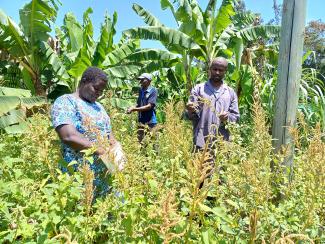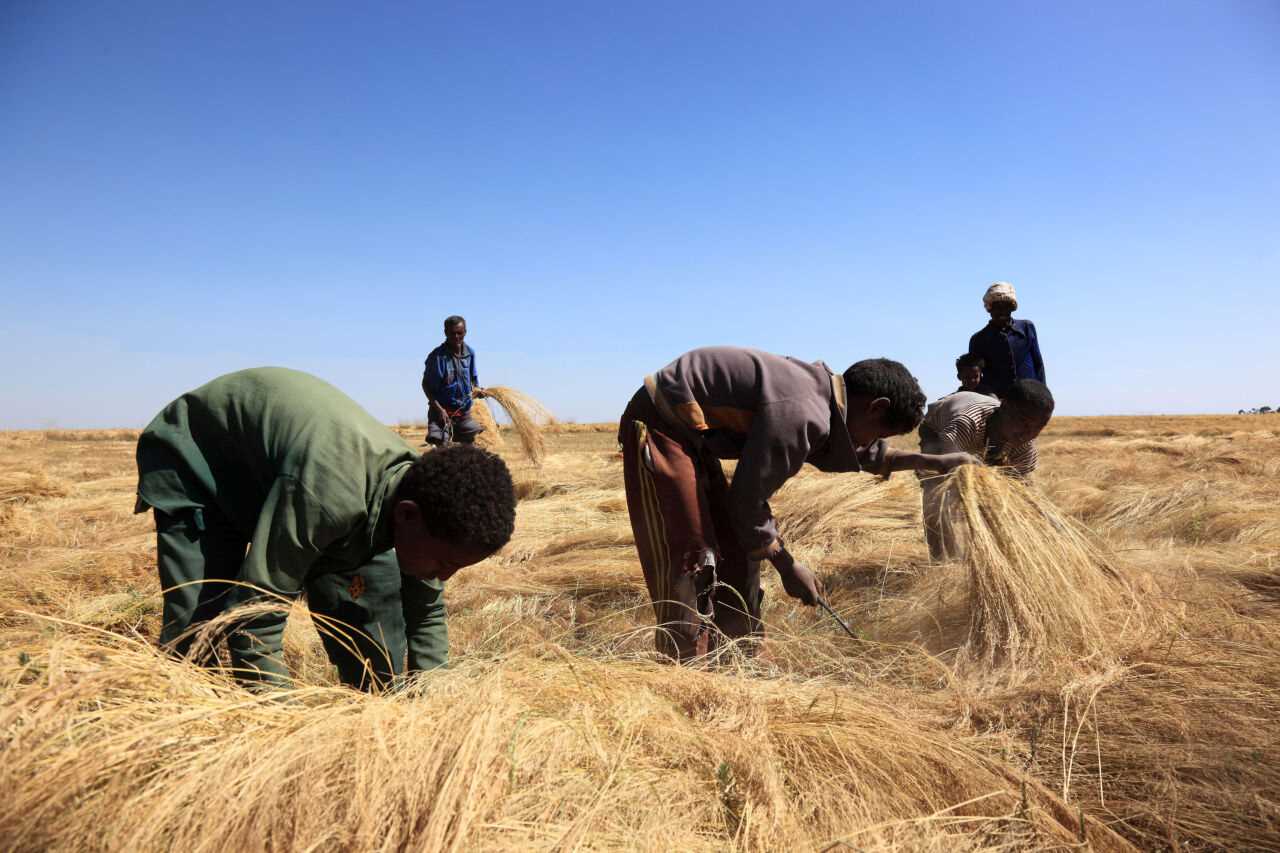Rural development
Agricultural policies must take into account local voices

Where do people suffer food insecurity most?
The situation is worst
- where war is raging,
- where the impacts of climate change are harsh and
- where specific groups suffer social marginalisation, for example in regard to access to land, money and other resources.
High food prices are a huge problem too. Though we see inflation going down in high-income countries, things are different in low-income countries. Many people simply can no longer afford what their families need.
Are prices still rising because the countries concerned depend on food imports?
Well, that is one of the reasons, but not the only one. Relevant issues include the quality of transport and storage facilities. Food security is a complex challenge, so we need multidimensional solutions. Well functioning value chains are crucial. Where agricultural production, food processing and distribution occur in close vicinity, things tend to be rather good, including in the sense of prices suiting the social context. Prices must be affordable to consumers, but also ensure good livelihoods to farming families. Strong rural infrastructure is always a precondition, including roads, mobile telephone networks, water and power supply but also education and healthcare. Where local economic cycles function well, food security is generally better than where this is not the case.
Is the climate crisis disrupting settings that so far worked quite well?
Yes indeed, and dramatically so. Almost every country is affected. In southern Africa, for example, droughts have become longer and more severe. Zimbabwe used to have a quite productive agriculture, but harvests are now declining because of an increasingly unfavourable climate. East Africa too has seen far too little rain in recent years. People are literally losing their livelihoods. It was hardly surprising that protests erupted in Kenya when the heavily indebted government decided to start taxing food items. People are desperate and angry in many places.
Will areas with harsh climate impacts need humanitarian aid in the long run?
No, not necessarily. That said, Germany‘s Federal Government recently set the wrong signal in the current global scenario by cutting the budget for humanitarian aid. In war-torn regions, the situation is catastrophic, and I am not only thinking of Sudan and Gaza. It is most worrisome that warring parties pay less and less attention to international humanitarian law. Unfortunately, that is true of both sides in Gaza. In joint appeals with other humanitarian agencies we have called for an immediate Gaza ceasefire several times – without success. International humanitarian law is ever more often being breached without international consequences. This trend is undermining western credibility and making it easier for Russia to become engaged in Africa. The demand for humanitarian aid is increasing for other reasons too, however, and more official development assistance is needed as well. Nonetheless, our Federal Government has cut those budgets.
What kind of development strategies can enable climate affected regions to stay self-sufficient in regard to food supply?
We must build resilient systems, and we know good approaches for doing so. It is important to involve all people concerned at the local level. Therefore, the voices of village people in the remote areas of low-income countries matter very much. Agricultural ecosystems tend to be quite fragile. Moreover, they differ from place to place. If they are to become more resilient, the specific local conditions must be taken into account right from the beginning.
What can be done to boost resilience?
Some interventions are actually quite simple. It is possible to irrigate rather large fields with solar-powered pumps. The most important thing, however, is to invest in ecologically sound soil management. This approach makes fields more productive, lets them store carbon and makes them more resilient to drought and flooding, because they are not swept away as easily by stormwater. It would make sense, moreover, to certify carbon storage in order to generate additional farm revenues. I see scope for many win-win settings.
So it is wrong to rely on heavy inputs of chemical fertiliser and pesticides?
Well, what we call conventional farming in Europe and North America is certainly not the only solution. Fertiliser and pesticide usage should not be condemned per se. Using heavy machinery in tropical and subtropical areas, however, is problematic too. A destructive result is compressed soils. The point is to use appropriate machines. Growing plants that suit local conditions, including potential drought or flooding, is essential. It is crucial to develop systems in a way that is appropriate to local conditions and, as I said, the consistent involvement of all local stakeholders is important because they know these conditions.
Is it international consensus to pay more attention to the wishes and demands of local communities?
Yes, we can only succeed in cooperation with the people and with nature. I see a rethink going on around the world. The core question is how can – and must – agriculture adapt to the fast changing climate. This rethink is not only happening among African governments who know that they cannot simply copy northern models. It is also evident in international institutions like the FAO (Food and Agriculture Organization of the United Nations) or IFPRI (International Food Policy Research Institute). Bilateral agencies like Germany‘s GIZ, an agency we are cooperating with well, are involved too, of course. On the other hand, it is obvious that huge investments are needed, and they will require the support of donor governments.
Mathias Mogge is the secretary-general of Welthungerhilfe, the Bonn-based international non-government organisation.
mathias.mogge@welthungerhilfe.de
X/Twitter: @MathiasMogge


















